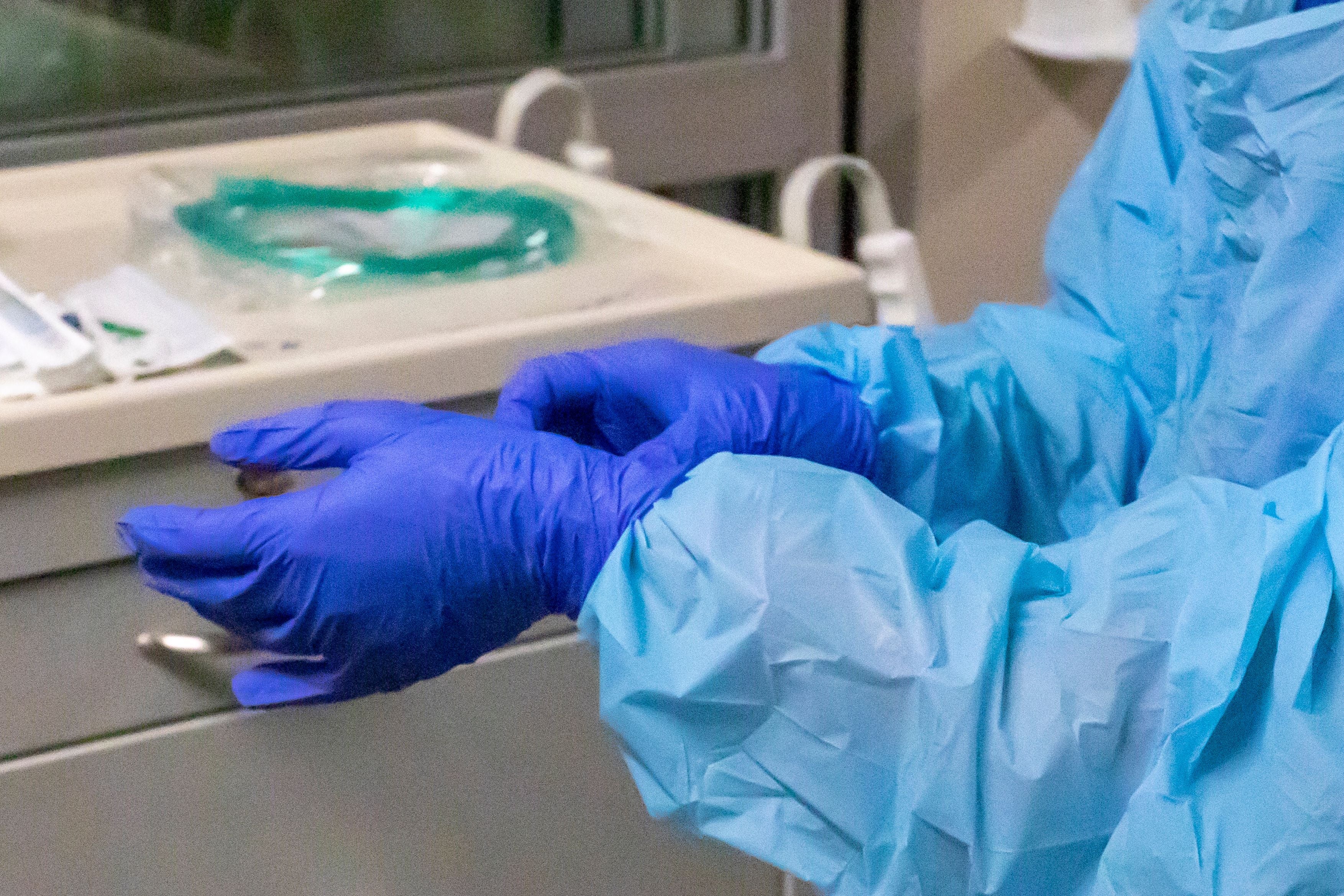Infant Gut Bacteria and Food Allergy Risk
Table of Contents
- 1. Infant Gut Bacteria and Food Allergy Risk
- 2. enterotypes and food Allergy Risk
- 3. Probiotics as a Potential intervention
- 4. Practical Implications for Parents
- 5. Conclusion
- 6. What are the six distinct enterotypes identified in the study, and how does the ‘Bifidobacterium’-dominant enterotype relate to food allergy risk?
- 7. Infant Gut Bacteria: A Key to Food Allergy Risk?
- 8. interview with Dr. Emily Harrington, Allergy and Immunology Specialist
- 9. Gut Microbiome and Food Allergies
- 10. Enterotypes and Allergy risk
- 11. Probiotics as Potential Interventions
- 12. Practical Tips for Parents
- 13. Looking Ahead: Research and Hope
The delicate balance of bacteria within an infant’s gut, known as the microbiome, plays a crucial role in shaping the immune system and may significantly influence the risk of developing food allergies. A recent study published in the Journal of Allergy and Clinical Immunology reveals a strong correlation between specific gut bacteria types present in infants at one month old and the likelihood of developing food sensitivity and allergy later in life.
According to the study authors,the early neonatal period is a critical window for immune system development,and the composition of gut microbiota during this time can have long-lasting consequences. “We know that the early neonatal period is critical for immune system development,and our results emphasize this,showing that the type of bacteria in the gut at this critical time is the best at predicting immune responses to food seven years down the road,” said study author Hiroshi Ohno,MD,PhD,deputy director of RIKEN Center for Integrative Medical Sciences.
enterotypes and food Allergy Risk
Researchers identified six distinct gut microbiome enterotypes in infants based on the abundance of various bacterial species.Notably, infants with a Bifidobacterium-dominant enterotype exhibited significantly lower risks of developing food sensitivity and allergy, particularly hen egg white sensitization. This finding suggests that the presence of Bifidobacterium bacteria in the infant gut may protect against allergic reactions.
“We conducted this study in the hope that a better understanding of neonatal gut microbiota would help generate ideas for allergy prevention strategies,” Ohno explained. “We found that these microbiota do correlate with food allergen-specific serum IgE levels and that intervention with Bifidobacterium during infancy might help prevent later food allergies, especially in infants who are the most at risk.”
Probiotics as a Potential intervention
The study’s findings have implications for the development of allergy prevention strategies. Promoting the growth of beneficial bacteria like Bifidobacterium through probiotic supplements could possibly reduce the risk of food allergies in high-risk infants. However, further research is needed to confirm these findings and determine the optimal probiotic strains and dosages for allergy prevention.
Practical Implications for Parents
while parents should consult with their pediatrician regarding their child’s individual needs, understanding the potential role of gut bacteria in food allergy development can empower them to make informed choices. Encouraging breastfeeding, providing a diverse diet, and discussing probiotic options with a healthcare provider may help create a supportive surroundings for a healthy gut microbiome in infants.
Conclusion
The study highlights the intricate link between the gut microbiome and food allergy development. By understanding the specific bacteria that contribute to immune system health, we can develop targeted interventions to prevent or mitigate the risk of food allergies in children. Continued research in this field promises to yield further insights and pave the way for new strategies to protect vulnerable children from the burden of food allergies.
What are the six distinct enterotypes identified in the study, and how does the ‘Bifidobacterium’-dominant enterotype relate to food allergy risk?
Infant Gut Bacteria: A Key to Food Allergy Risk?
interview with Dr. Emily Harrington, Allergy and Immunology Specialist
We recently caught up with Dr.Emily Harrington, an allergy and immunology specialist, to discuss the fascinating link between infant gut bacteria and food allergy risk. Her insights into a recent study published in the Journal of Allergy and Clinical Immunology shine a light on the potential role of probiotics in preventing food allergies.
Gut Microbiome and Food Allergies
Archyde: Dr.Harrington, can you explain the role of the gut microbiome in shaping the immune system, particularly in relation to food allergies?
Dr.Harrington: The gut microbiome plays a crucial role in training and maturing the infant’s immune system. The microorganisms living in the gut interact with immune cells, influencing how they respond to allergens. A balanced microbiome can definitely help prevent overreactions to harmless substances, potentially decreasing the risk of food allergies.
Enterotypes and Allergy risk
Archyde: The study identified six distinct enterotypes. Can you tell us about the ‘Bifidobacterium’-dominant enterotype and its relation to reduced food allergy risk?
Dr. Harrington: Infants with a ‘Bifidobacterium’-dominant enterotype showed a significantly lower risk of developing food sensitivity and allergy, particularly hen egg white sensitization.’Bifidobacterium’ species produce short-chain fatty acids that modulate the immune system and may contribute to this protective effect.
Probiotics as Potential Interventions
Archyde: Given these findings, could probiotics help prevent food allergies in high-risk infants?
Dr. Harrington: Probiotics show promise in allergy prevention, but more research is needed to confirm their effectiveness and determine the optimal strains and dosages. While we can’t recommend specific probiotics yet, discussing potential options with a healthcare provider might be beneficial for high-risk infants.
Practical Tips for Parents
Archyde: What advice would you give to parents who want to support a healthy gut microbiome in their infants?
Dr. Harrington: Supporting a diverse gut microbiome starts with encouraging breastfeeding, providing a varied diet once solids are introduced, and avoiding unnecessary antibiotic use. Discussing probiotic options with a pediatrician is also an excellent idea.
Looking Ahead: Research and Hope
Archyde: What do you see as the next steps in research and potential therapies in this area?
Dr. Harrington: Further research is essential to understand the complex interactions between the gut microbiome and the immune system. We’re optimistic that targeted interventions like probiotics, prebiotics, or even fecal microbiota transplants could help prevent or mitigate food allergies in children down the road.
Archyde thanks Dr. Harrington for her insights and looks forward to reporting on future developments in this promising field.



